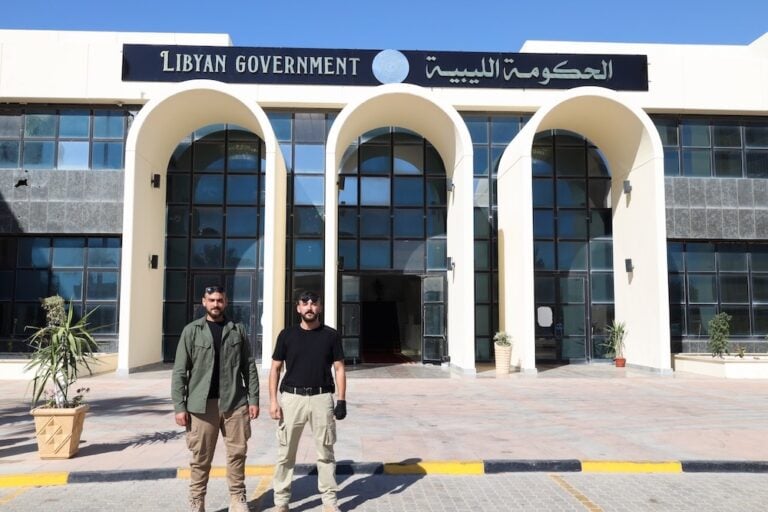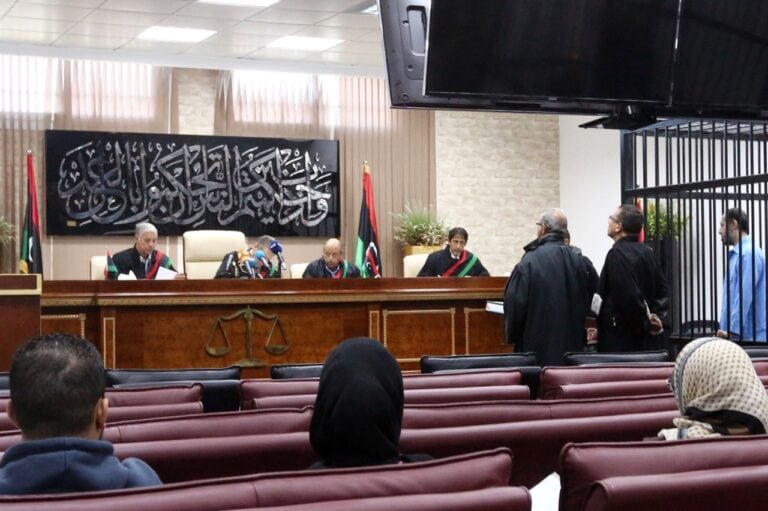Journalists are calling on the government to pass and implement laws guaranteeing the media’s independence from government control.
(IPI/IFEX) – Vienna, July 11, 2012 – After the first free elections held in Libya’s recent history, the country is preparing for a new government that will oversee the creation of a new constitution and, in theory, the institution of democratic values. Former leader Muammar Qaddafi’s regime was known for its brutal suppression of dissent and its tight control over the media, which was dominated by state-run media and private media forced to toe the government line.
Now, Qaddafi is gone, but journalists say that the government must pass and implement laws guaranteeing the media’s independence from government control. The state-owned media, which acted for so long as the mouthpiece of the former regime, is of particular concern.
Ibrahem Shibani, editor and founder of the bilingual magazine The Libyan, told IPI: “While we have absolute freedom of the press, including the
right to speak and write critically, there is still nothing to protect journalists in the country and nothing yet has been done about this.”
Dr. Said Laswad, chief editor of the Tripoli Post, was more optimistic. On the phone with IPI several days ago, he said that Libyans had entered a “new era in terms of media, characterised by a free press and freedom of expression, an era with no censorship, in which people immediately realised the importance of a free press and started up their own media outlets.”
New Media on the Scene
Last year, 2011, was dangerous for all journalists in Libya, whether they practised from the liberated East or were under considerable pressure in the capital Tripoli. Five journalists were killed during the year, and many more imprisoned and later released.
But the end of Qaddafi’s control over the country and, later, the official liberation of Libya on Oct. 23, 2011, paved the way for democratic values including freedom of expression and press freedom to be established.
Obstacles to forming media outlets were lifted as central power receded – for example the previous bans on publishing in the Berber language of Amazigh or in English. A wave of young Libyans immediately seized the opportunity.
The Benghazi Media Center, where many journalists were based during the days of the revolution, consisted of only a few computers in an abandoned building. Soundproofing involved sticking sponge to the walls. It was dangerous work: Mohammed al-Nabbous, founder of the online channel Libya Al Hurra and one of the citizen reporters based out of Benghazi, was killed by sniper fire in March 2011, one of five journalists to have lost their lives during the conflict.
But despite the risks and a frequent lack of infrastructure or training, new media has bloomed. In the Qaddafi era there were some 19 Arabic papers and three satellite television stations. But since the uprising, a quick tally shows that nine television stations and seven radio stations have been launched, and Internews reported that by July 2011 there were some 120 new print publications.
Long Road to Institutionalising Press Freedom
The Libyan constitutional declaration of Aug. 3, 2011 paved the way for the protection of some rights. Article 13 of the draft constitution guarantees “freedom of opinion for individuals and groups… [and] freedom of communication, liberty of the press, printing, publication, and the mass media”.
In December 2011, Northwestern University in Qatar hosted “Media Vision for Libya: A Good Offices Conference”. Libyans, including key members of the NTC, agreed upon six principles that would serve as a framework for the development of media policy. These included the need for Libya to have a “free, open, and independent media and communications system”. The principles include the need to encourage the formation of private media, ensure the independence of regulatory bodies and transform the state media into independent media.
But in practice, the NTC has yet to form a new and strong legal basis for media freedom. The media-related laws that were initially tabled were deemed by journalists to be contradictory to press freedom principles.


